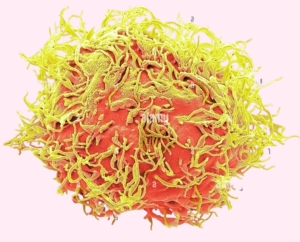
Mesenchymal stem cells
Mesenchymal stem cells, also known as MSCs, are a type of stem cell found in various connective tissues of the body. They play an important role in tissue regeneration and repair, as well as in modulating the immune system.
Mesenchymal stem cells, can be found in many tissues, such as bone marrow, adipose tissue, connective tissue of the skin, umbilical cord and other mesenchymal tissues.
These cells have the ability to differentiate into various specialised cell types, including bone cells (osteocytes), adipose cells (adipocytes) and cartilage cells (chondrocytes), as well as other cell types linked to connective tissue. They are able to migrate to damaged areas of the body and promote healing by releasing growth factors and interacting with other cells present in damaged tissue, and to monitor their behaviour during culture and use in regenerative medicine some biomarkers commonly associated with mesenchymal stem cells are used:
-
CD73 : The CD73 protein is often used as a surface marker to identify MSCs. It plays a role in regulating immune function and modulating inflammation.
-
CD90 : Also known as Thy-1, CD90 is a marker frequently associated with MSCs. It is expressed on the surface of cells and is used to identify MSCs in cell cultures.
-
CD105 (Endogline) : CD105 is a surface marker used to distinguish MSCs from other cell types. It is involved in the regulation of cell growth and différentiation.
-
Stro-1 : Stro-1 is an antibody used to isolate MSCs and is often considered to be a characteristic marker of these cells.
-
CD44 : The CD44 protein is involved in l'adhérence cellulaire et la migration. It is also expressed by many MSCs and can be used as a marker.
-
Nestine : Although traditionally associated with cellules souches neurales, The Nestin protein can also be expressed by MSCs and can be used as a marker when combined with other specific markers.
-
Oct-4 and Nanog : These transcription factors are generally associated with cellules souches embryonnaires, but they can also be expressed at low levels by certain MSCs. Their expression may indicate a more undifferentiated state of the MSCs.
-
Facteurs de croissance : Certain growth factors, such as VEGF (vascular endothelial growth factor) and the TGF-β (transforming growth factor beta), can be used as indirect markers to assess MSC activity and differentiation potential.

